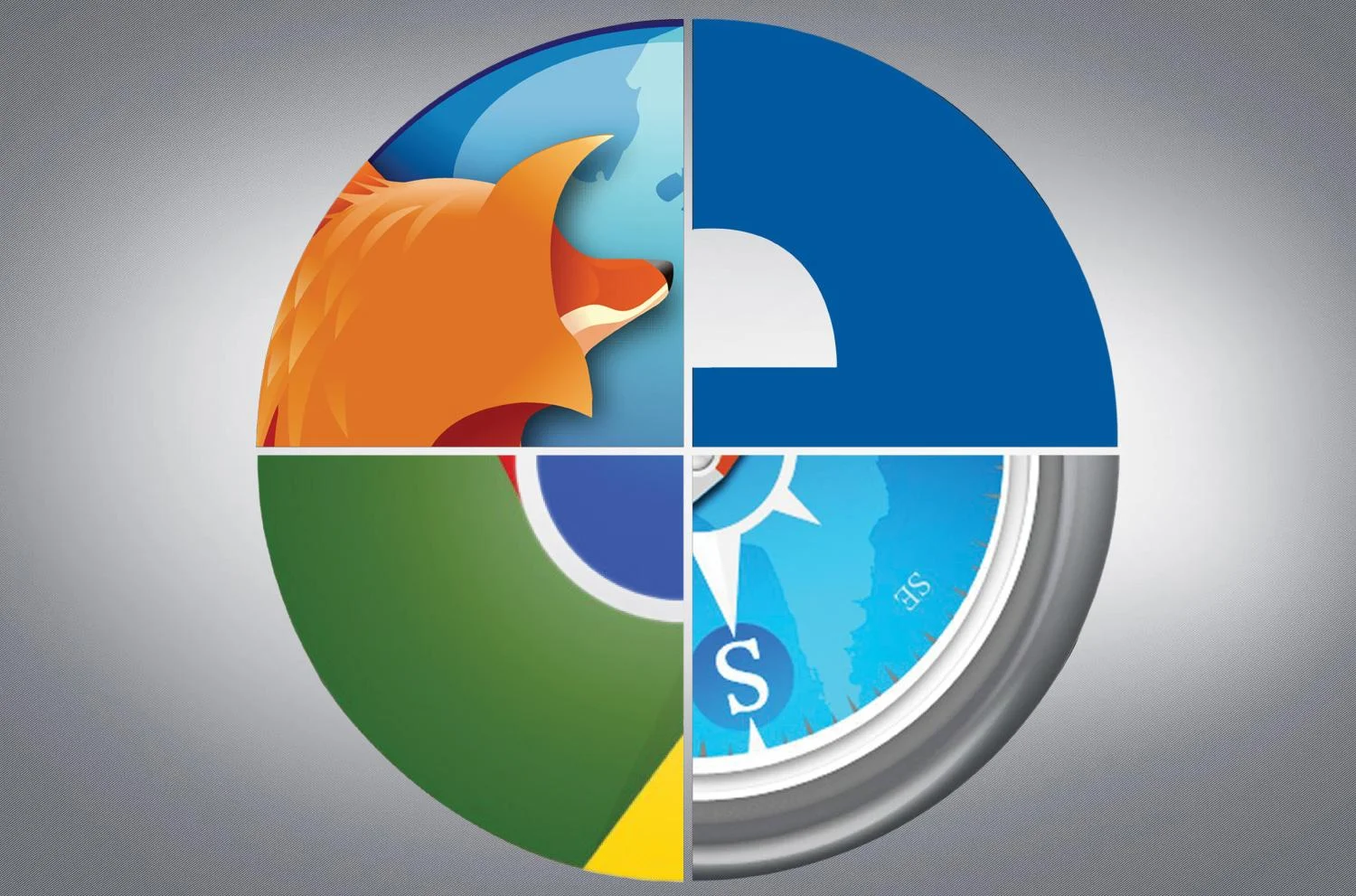Though you might not know it yet, there’s a livestreaming revolution brewing just around the corner. As social media juggernauts like Twitter look past pre-recorded video and into the world of “live as it happens” streams, the apps that make it possible for users to instantly get moving images off their phones and into the ether are starting to flood in.
How to Save Your Smartphone From the Brink of Watery Death
It’s happened again. You were trying to answer a call while washing dishes, and your phone takes a dive straight into the sink. Getting water inside your phone is one of the most devastating ways to watch your mobile device bite the dust, but fear not, all is not lost just yet.
Decrypt This: The Future of Router Security
Even 30 years after they were first introduced, the routers we know and love today are still struggling to find their footing. There is still hope, however, in the form of new devices called “network attached peripherals.”
Not only that, but as companies learn how to better communicate between themselves and their customers, the learning curve of creating a safe net of personal security is becoming more moderate every month.
How to Clean Up Duplicate Contacts on Your iPhone
If you use your iPhone to manage multiple address books from work, school, or your personal life at once, you’ve probably run into the problem of duplicate contacts before.
Oftentimes when third-party applications like Facebook, Gmail, or Outlook attempt to import contact details into your phone, if there’s even a slight difference between the information one service has and what’s already stored locally on your device, the whole system goes haywire, and you can end up with a handful of contact pages that all belong to the same friend or colleague from the office.
Play the Role of a Cheapskate with These 5 Free RPGs
Want a premiere RPG gaming experience on your PC, but don’t feel like shelling out any cash for Skyrim? Worry not, adventurer, because these days it’s easier than ever to dive into a collection of expansive game worlds without dropping a dime , each flush with all the rich character development you’d usually expect from a $60 Bethesda epic.
It’s time to strap on that wizard staff and equip your heartiest healing potions, because here are our favorite free RPGs for your PC.
Velocity Micro Raptor Z40 Review
It seems going micro is all the rage these days. Custom PC builders continue to test the limits of how much power they can squeeze a small of a footprint.
You won’t find me complaining. Time and time again manufacturers like Origin, Northwest Falcon, and Digital Storm have proven that you don’t need to take up a lot of room to make a lot of boom. Now Velocity Micro is getting in the game. With an i7-4790K, 16GB of RAM, and a GTX 980 to boot, its new Raptor Z40 attempts to find the perfect compromise of price, size and power.
Starting at $1,099 ($2,699 as tested), the Raptor Z40 is Velocity Micro’s attempt to live up to the latter half of their namesake, without sacrificing the former. Will this compact computer prove the manufacturer has what it takes to battle in the increasingly competitive micro-PC battlefield?
What Is a Zero-Day Attack, and Can Anything Defend Against It?
The easiest way to describe a zero-day is to break it down into its component parts. We start out with “zero,” which is the number of “days” that a vulnerability in a popular piece of software or hardware has been known and has gone un-patched by the developers of the device or program that’s been exploited. A zero-day is a previously unknown threat, so there’s no patch to combat it.
Zero-days continue to represent one of the biggest thorns in the side of Internet security. Thorns that, while difficult to defend against directly, can still be avoided with a proper set of tools and techniques ready at your side.
Decrypt This: How a Cookie Ruined Routers for the Rest of Us
Last week, I gave you your first taste of the wild world of home router security.
In the report, I delved into a few of the reasons why, even after three decades in business, router manufacturers continue to struggle to maintain pace with hackers in keeping the personal, professional, and financial information of their customers safe from harm.
Now as promised, I’m back this week with act two. I’ll dive headfirst into why even after so much time on the market, our home networking equipment still lags woefully behind the bell curve when it comes to protecting the data you hold most dear.
BitDefender Box Review
A few weeks back, I was a bit excited about a new product that would be hitting the security scene in the next couple of months. Small, white, and unassuming, the BitDefender Box was on my top five list of most anticipated releases this year, and represented (in my eyes at least) a possible revolution in the world of personal Internet security.
In that gush-fest, I listed several ways in which traditional antivirus solutions had failed to keep pace with the constantly evolving landscape of Internet security, and with great exuberance began to usher in the era of hardware-assisted protection as the next great hope for personal privacy on the internet.
Decrypt This: Why is Router Security So Full of Holes?
With every fresh wave of new routers and networking equipment that hits the shelves comes the promise of a new age of functionality, usability, and security. Whether it’s the newest Nighthawk from Netgear or just another in a long line from Linskys, I’m always surprised at the bells-and-whistles companies can come up with.
But, despite continued innovation in the market, it’s becoming apparent that a change in how we protect home networks should be at the top of everyone’s to-do list. Router makers need to step up their game if the wireless hardware of today is to protect us from whatever threats might show up tomorrow.
How a Simple Box Might End Our Need for Antivirus Software Forever
still remember the day my dad installed the first antivirus program I’d ever seen on my old Pentium II. Adorned in its signature colors of black and gold, I quickly came to learn all the ins and outs of my Norton Antivirus suite, from queuing up its scanning schedule to understanding what settings I needed to fix to ensure my favorite games of the time (Diablo and Starcraft), wouldn’t be flagged when I played with friends.
Over the years I would form a special kind of love-hate relationship with the many security products that would grace my machines, from McAfee to Kaspersky, AVG and Avast. Their incessant notifications would rarely fail to stress that my subscription was about to run out, and served as a constant reminder of how I was paying good money for the privilege of staying safe.
Why Securing Your Browser is the Best Defense
Over the past few weeks in Decrypt This, we’ve covered everything from which OS offers the best level of security to the top three VPN providers on the market. Now, it’s time to tackle the main gateway that most malware makers use to get from their botnets to your desktop: the web browser.
Though there are clear winners when it comes to which can reasonably call itself “most secure,” each browser in this roundup offers its own unique solution to the problem of how to keep users safe. All four bring different answers to the party, and feature a range of customizable options and apps which reward patience with privacy.
Three VPN Competitors Go Head-to-Head
A VPN (short for virtual private network) is a unique method of protecting privacy that works by linking you up to a single, external IP address which prevents the outside world from sourcing where the original connection started. An average provider of this service will usually have a dozen or more hotspots located in different countries, each designed to trick websites and outside servers into thinking you’re somewhere you’re not.
TOR: What You Need to Know and How It Protects Your Privacy
Tor.
This is a word that’s been tied to Edward Snowden, The Silk Road, and Bitcoin. Even the NSA made the front page with its very own PowerPoint presentation on the many challenges it faced while trying (and failing) to crack its elaborate code. What is Tor, where did it come from, and why can’t people stop talking about it?
Northwest Falcon Tiki Z Review
For over two decades the engineers at Falcon Northwest have set the standard for personalized, customized PC gaming rigs built just to your specifications. As other companies flood the market with cheap competitors and budget builds, few have stayed true to their mission as staunchly as Falcon, and this dedication is nowhere more evident than in the new Tiki Z.
2014 Was the Biggest Year for Malware Yet
Time to pack up your booze and party hats. I’ve got one more roundup which is sure to make you think twice before downloading that latest New Years music mix online.
Whether it was a cash register down at Home Depot, SCADA systems installed at nuclear power plant facilities, or even just the webcam perched at the crest of your laptop, if there’s any lesson we learned in 2014, it’s that nothing is safe from the ever-present threat of malware and the hackers that create it.
In this final infection inflection I’ll cover the biggest stories that popped up and even give you a glimpse of what you can expect on the wires in 2015.
How to Make Life Harder for Laptop Thieves
Another day, another temporary workspace set up at the local Starbucks. You’re a few hours into that latest screenplay, and as it does when the caffeine is flowing, nature calls, and the bathroom is just a short hop away. Upon returning to the makeshift desk at the corner of the coffee shop, your eyes dart from the table, to the counter, to the floor. Your heart drops into your stomach.
OS Security Showdown
2014 has been a tumultuous year for personal security. Through the continuing revelations of NSA leaks, North Koreans shutting down Sony, and the big bad bug that made everyone’s Heart Bleed, the past twelve months have shown that the hairiest of hacks are almost always in the last place you’d think to look.
Syber Vapor I Review
With the Winter Steam Sale in full swing, there are a few questions that are fresh on the minds of PC gamers. What happened to the release of Steam OS? Why is Big Picture such an unstable mess? And when, if ever, will we see our first glimpse of Half Life 3?
iBuyPower SBX Review
This is what we get for depending on Valve to release a product on schedule.
First announced back in September of last year, Steam OS was on track to take the console industry by storm, closing the gulf that has existed between mid-range gaming PCs and their living room equivalents for too long.



















